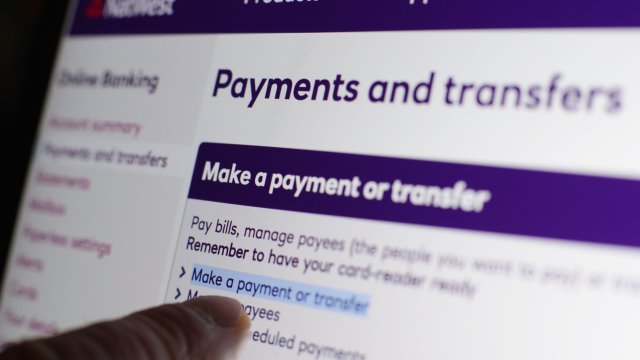
In our weekly series, readers can email in with any question about their finances to be answered by our expert, Charlotte Ransom. Charlotte has 30 years’ experience working in financial services and wealth planning, including 10 years as a partner at Goldman Sachs. She co-founded Netwealth, which specialises in low-cost investing and financial planning advice. If you have a question for her, email us at money@inews.co.uk.
Question: My wife and I are now mortgage free, which is amazing. However, it now means we have an extra £750 each month to spend or save. I have worked out that if we save wisely, we could add an extra £180,000 to our retirement funds and that’s without investing. What are your best tips for how to make the most of this money?
Answer: It can be a great relief to be able to release extra cash when a major debt is paid off. Paying off a mortgage, as in your case, is a considerable milestone, and one that is now presenting you with other important opportunities.
It’s very positive that you are now looking at how to put your money to work to make sure you are well positioned for your retirement.
You don’t say how long it is before you retire, but a basic calculation shows that £9,000 a year (£750 a
month) would reach £180,000 in 20 years. So we can say with some certainty that you have a long-term horizon in mind. Now let’s think about saving versus investing. If you were factoring in some savings growth from compounding interest at, say, 4 per cent a year, it would instead take around 15 years to reach your goal of £180,000.
Unfortunately, while 4 per cent may not seem overly high today, a growth rate of 4 per cent from saving rather than investment is likely to be optimistic.
Ever since the financial crisis of 2007/08, the Bank of England base rate has been below 1 per cent – until very recently. It only started rising again in December 2021 when it moved up from a low of 0.1 per cent before a steep trajectory to today’s 5.25 per cent. Perhaps a long-term level of 2 per cent to 3 per cent is more realistic for money kept in deposit or savings accounts since inflation is starting to come down and many assume interest rates will also decline over the next year or so.
However, you want to act purposefully to ensure your money outpaces inflation and delivers some real growth, and leaving your money in a savings account has rarely proven to be the best long-term option to achieve this goal. Investing your money in a diversified mix of assets, such as stocks and bonds, has typically been the best long-term solution to grow a pot of money.
You don’t say what your other retirement funds consist of but, alongside the need to invest, I would also hope you are making the most of available tax efficient vehicles – such as pensions and Isas – to make the most of tax-free growth. We have covered why you should invest, rather than save, for your future in this column many times.
Let’s also address what might potentially be stopping you, and other savers nationwide, from taking a more proactive approach. Many people are put off investing partly due to uncertainty and also the perceived hassle and cost. Uncertainty, which is possibly heightened by the current mixed outlook for global growth and markets, is a common issue and is a reminder that we are governed by our emotions and the cognitive biases that can hinder us from acting. Uncertainty further clouds our judgement.
These biases affect us in all walks of life when making decisions and a particularly powerful bias, that is specifically related to investing, is loss aversion. This is a core element of the wider Prospect Theory developed by renowned psychologists Daniel Kahneman and Amos Tversky. In a nutshell, they found that losses, or their potential, have a greater impact than gains or the possibility of gains, even if the probability is the same.
The prospect of a loss hurts so much more that we devote more of our energy to keeping our money safe through saving it, rather than growing it through investing. This is despite the fact that a savings account will rarely protect the real value of your funds better than money that is invested over time.
A jumble of other cognitive biases further affect our ability to make rational decisions. For example, our minds are trained to discount future benefits versus those we can benefit from more immediately. We prefer our rewards to come swiftly. This is why it is often tough for people to visualise the benefits of a pension when the outcome is so far away.
Happily, in your case, you appear to be focusing on benefits that will accrue in 15 to 20 years’ time. And it’s hard to beat indisputable facts. Over the past 25 years, for example, the average annual return from a basket of global stocks would have produced around 7.8 per cent a year, while the average return from UK cash savings would have produced 2.4 per cent a year.
That amounts to a difference of more than 550 per cent total returns versus around 80 per cent and suggests that investing your £750 a month is likely to produce far more favourable outcomes than simply saving this money. Investment should both build your pot more substantially for retirement and allow it to last longer.
We also mentioned perceived hassle and cost as being further obstacles to investing. That is where wealth managers can remove hassle from the equation by investing on your behalf. However, some do a better job than others at doing so for a reasonable cost. If you are going to spend time on researching possible managers for your retirement funds, all-in fees should be high on your list of aspects to research. Time and again we find clients are astounded to discover the fees they have been paying, and the impact of high fees on their wealth. The longer an investor pays over the odds, the greater the impact on that hard-earned money and the longer it will take to grow.
So, I would guide you as follows: take the time to decide who to entrust with your additional retirement funds, get them invested in a diversified portfolio in order to benefit from any market growth over the next couple of decades ahead of retirement and, if you are able to secure a sufficiently low all-in fee from your manager, carve out some of that saving for treats for yourself and your wife for a job well done.







